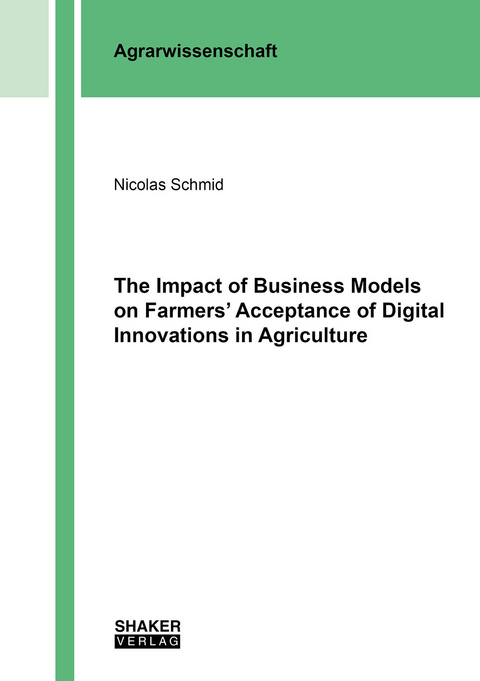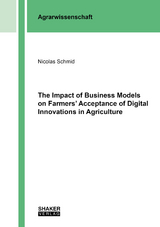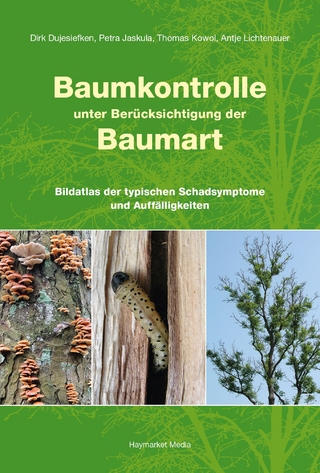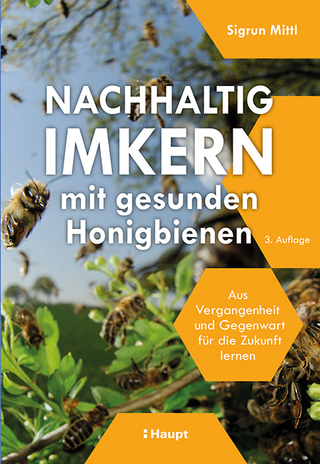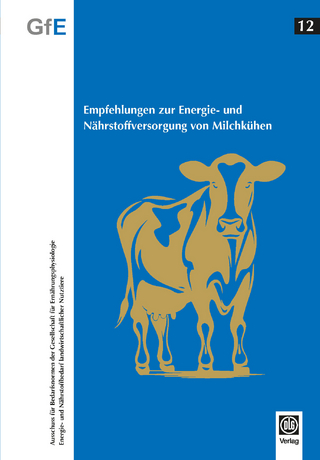Nicolas Schmid The Impact of Business Models on Farmers’ Acceptance of Digital Innovations in Agriculture
Seiten
Modern agriculture is challenged to sustain or grow current yield levels while simultaneously reducing the number of chemical inputs applied to increase the sustainability of crop production. Besides increasing public pressure and tighter governmental regulations, agronomic challenges push crop protection strategies, which were effective in the past, to their limits. More targeted and need-based application of crop protection products, such as herbicides, are required to address both increasing public and agronomic pressure. Technologies which make use of the given heterogenous occurrence of weeds, are known under the term site-specific weed management. Real-time sensing and localization of weed patches and spot spraying of those can unlock enormous saving potential, at a similar level of weed control success, as compared to current broadcast application strategies. Thereby farmers are confronted with a trade-off between significant higher purchasing costs and unknown economic savings over the lifetime as potential herbicide reduction can vary in a wide range.
This thesis evaluates the contribution of Business Model Innovation to drive the adoption rates of site-specific weed management and avoid restrained adoption, as it can be observed for other complex Precision Agriculture technologies. This complementary innovation dimension improves value creation, value delivery and value capturing in the market. A Discrete Choice Experiment, which confronts participants with a hypothetical trade-off purchasing decision, was conducted. Data from a representative sample of 747 Western European farmers were collected and statistically analyzed. Within a given number of attributes, characterizing different site-specific weed management solutions offered in the market by means of different Business Models, the value capturing mechanism followed by the level of savings achievable were identified as the two most important attributes. The analysis proved correlations between socio-economic and farm-demographic factors and the adoption preferences for both site-specific weed management and new revenue model types. Transition from traditional one-time purchase towards recurring revenue models, which combine sprayer purchase with subscriptions, negatively influenced adoption rates. If those are combined with additional service offerings and other improvements in the value proposition, those models can outperform the traditional purchase model. Positive impact related to customers’ willingness to pay for the recurring revenue model type could be proven as well. The results are underlining the potential of Business Model Innovation to unlock the value of disruptive Precision Agriculture technologies, like site-specific weed management, from which farmers, contractors, manufactures, dealer, society, and the environment will profit.
This thesis evaluates the contribution of Business Model Innovation to drive the adoption rates of site-specific weed management and avoid restrained adoption, as it can be observed for other complex Precision Agriculture technologies. This complementary innovation dimension improves value creation, value delivery and value capturing in the market. A Discrete Choice Experiment, which confronts participants with a hypothetical trade-off purchasing decision, was conducted. Data from a representative sample of 747 Western European farmers were collected and statistically analyzed. Within a given number of attributes, characterizing different site-specific weed management solutions offered in the market by means of different Business Models, the value capturing mechanism followed by the level of savings achievable were identified as the two most important attributes. The analysis proved correlations between socio-economic and farm-demographic factors and the adoption preferences for both site-specific weed management and new revenue model types. Transition from traditional one-time purchase towards recurring revenue models, which combine sprayer purchase with subscriptions, negatively influenced adoption rates. If those are combined with additional service offerings and other improvements in the value proposition, those models can outperform the traditional purchase model. Positive impact related to customers’ willingness to pay for the recurring revenue model type could be proven as well. The results are underlining the potential of Business Model Innovation to unlock the value of disruptive Precision Agriculture technologies, like site-specific weed management, from which farmers, contractors, manufactures, dealer, society, and the environment will profit.
| Erscheinungsdatum | 06.01.2024 |
|---|---|
| Reihe/Serie | Berichte aus der Agrarwissenschaft |
| Verlagsort | Düren |
| Sprache | englisch |
| Maße | 148 x 210 mm |
| Gewicht | 252 g |
| Themenwelt | Weitere Fachgebiete ► Land- / Forstwirtschaft / Fischerei |
| Schlagworte | Business Model • Farmer • Precision Agriculture |
| ISBN-10 | 3-8440-9315-X / 384409315X |
| ISBN-13 | 978-3-8440-9315-5 / 9783844093155 |
| Zustand | Neuware |
| Haben Sie eine Frage zum Produkt? |
Mehr entdecken
aus dem Bereich
aus dem Bereich
Buch | Hardcover (2023)
Haymarket Media (Verlag)
31,80 €
aus Vergangenheit und Gegenwart für die Zukunft lernen
Buch | Softcover (2024)
Haupt Verlag
39,00 €
Buch | Hardcover (2023)
DLG-Verlag
79,90 €
